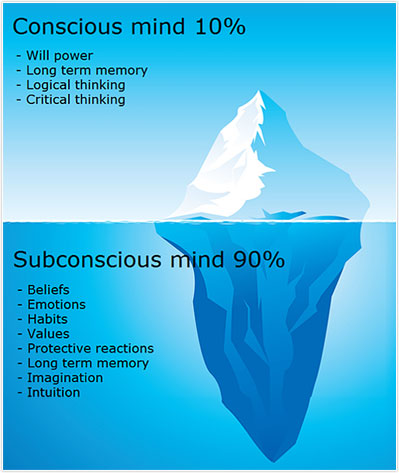The skills of Linda Milburn, CEO of Hypnocare was recently featured on Nova radio
Listen in on how she hypnotised Nat from the Nova Crew and one of her listeners in overcoming a bad habit

Let Linda personally help you overcome your bad habits, disorders or overwhelming problems

Five Methods for Treating Depression with Hypnotherapy
Depression can often be the consequence of a traumatic or highly distressing event.
People or situations associated with this trauma are called traumatic triggers. For instance, a depressed person might report: “I was never depressed before the death of my father (or mother, spouse, child, best friend, etc.).”
Following the death of a loved one, one must often deal with the person’s belongings or home, or must take up their former responsibilities.
Any of these things are liable to become a traumatic trigger.
Especially in cases where the bereaved person doesn’t have enough time to grieve completely and totally process their unresolved emotions attached to the person lost, depression can set in right away.
Other traumatic triggers can include the loss of a job, a divorce, or a financial crisis like a bankruptcy or foreclosure on one’s home.
SIGNS AND SYMPTOMS OF DEPRESSION
Here are some typical signs of depression which can take a person over unawares, like a fog slowly moving in over a sunny day and now, darkening it little by little every minute:
- Loss of motivation to get out of bed in the morning, and losing interest in the things that once inspired or excited
- Mysterious body pains that begin to cause anxiety about having cancer, diabetes, arthritis, or fibromyalgia
- Excessive eating and wait gain, or an increase in the use of alcohol, cigarette, or drugs
- Inability to sleep and the resulting exhaustion; 5) Bursting all to easily into tears, yet feeling numb most of the time.
Symptoms like these can be treated with prescription medications, such as anti-depressants, sleeping pills, or in other cases a diet or program to quit smoking can be prescribed.
These methods, however, target only the symptoms of depression without rooting its underlying causes.
A person suffering from depression may also go to a therapist to talk about their feelings, and this might help for a little while.
Therapists might also use relaxation techniques and/or positive reinforcements.
However the basic reason why common treatments like these do not always work is that they can fail to resolve or even address the basic, underlying cause of the depression.
HOW IS CLINICAL HYPNOTHERAPY USED TO TREAT DEPRESSION?
- It lets patients get in touch with their subconscious minds. The conscious mind is apparently only 10% of one’s total mind; by entering a person’s subconscious it is possible to treat the entire person, or 100% of the mind as opposed to just the symptoms floating on the surface.
- It helps people root out unresolved issues. Many people in the type of situation described above have what Dr. Fritz Perls calls “unfinished business”. Unresolved emotions like resentment, anger, blame, guilt, regret, jealousy, or anger can be stored up in the body, and need to be released in order for the patient to recover. Otherwise they can become buried underneath a numbness brought about by medication, addictive behaviors, or the repression that takes place when trauma or grief are left untreated. Clinical hypnotherapy, on the other hand, aims to remove the basis of depression and resolve the unfinished business that would otherwise continue to recur time and time again as self-defeating thoughts or behaviors.
- It can help people put an end to “unfinished business” by releasing the stored up emotions. Hypnotherapy is able to plumb the deepest level of a person’s traumatic experience, memory, and stored emotion in order to release harmful stores of negative emotion. When the process of hypnotherapy is completed, clients often report a relief of their depression and of the compulsive thoughts and behaviors keeping them in their rut, and feel that they are ready to continue on with their lives once again.
- It can replace the relieved trauma with positivity. Hypnotherapy sessions can progressively replace the anxious and repetitive thoughts haunting people after a traumatic experience with more positive and enriching ones. One is more susceptible to positive affirmations once their negative store of emotions has been released.
- It can use the power of suggestion to create a long-term improvement. Hypnotherapy can provide an effective means for accessing an individual’s capability to affect their physical body. After one’s self-sabotaging thoughts or behaviors have been put away for good, individuals may begin using hypnotic suggestion to improve the function of their body. Hypnotherapy is also very helpful for correcting restless sleep, low levels of energy and libido, or even chronic pain or headaches. Hypnotherapy can also be used to increase one’s motivation to exercise or to maintain a healthy diet.
Conclusion
A consistent refinement through research and methodology has allowed hypnotherapy to develop into an advanced form of therapy so much that clinical hypnotherapy today is regularly considered for the treatment of depression.
In conjunction with with a variety of other psychotherapy techniques, hypnotherapy can be highly successful as a form of treatment for those suffering from depression.
If you are experiencing high levels of stress seek the expertise of a professional hypnotherapist for expert advice and treatment.
Hypnocare Hypnosis Clinic Fremantle
Linda Millburn
Located in Hilton, 3min from Fremantle, WA.
Tel: 0409 079 435
Tel: 08 9388 6322
Hypnocare Hypnosis Clinic Mundaring/Midland
Jan
Tel: 0423936933
Medical Disclaimer
Results will vary from person to person.
For More Information & Disclaimer: Full Medical Disclaimer Here
Hypnocare Hypnosis Clinic Fremantle
Linda Milburn
Located in Hilton, 3 min from Fremantle, WA.
Phone:
0409 079 435
08 9388 6322

Linda Milburn
Involved in Natural Healing for over 30 years
Fellow Member of the (AHA) Australian Hypnotherapist Association
Past State Executive Officer and Board Member of the AHA for 8 years
